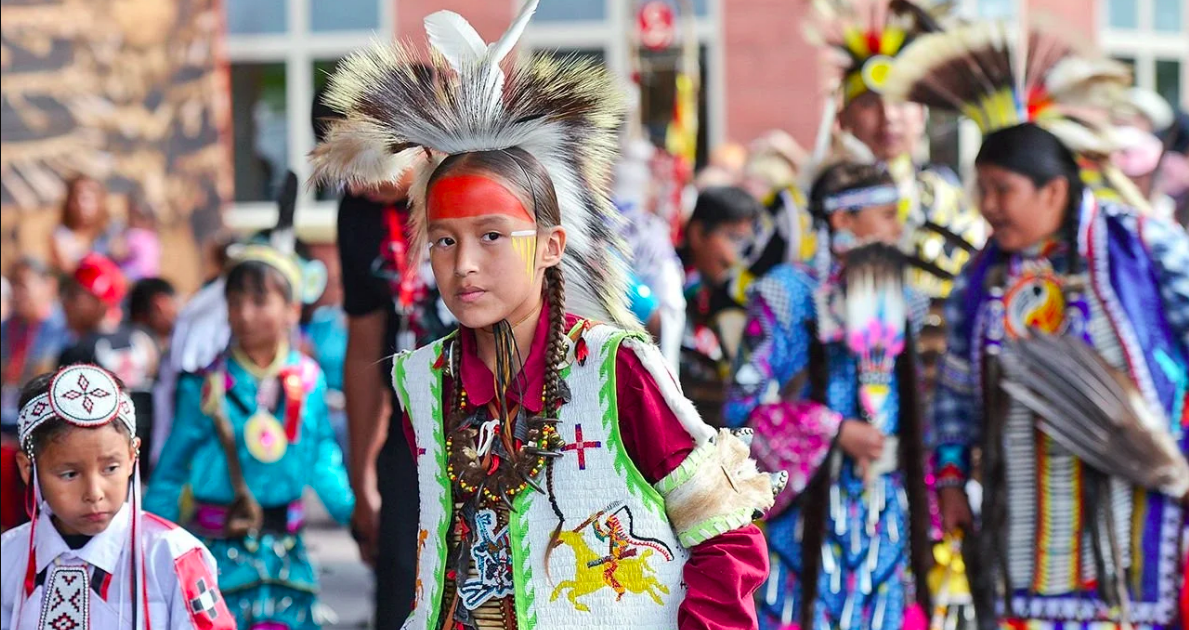BY TVISHA MISTRY
“My language is part of my culture, it’s who I am,” said Cheyenne Cunningham.
Cheyenne Cunningham is the Indigenous languages program coordinator at Simon Fraser University. Cunningham is of Katzie descent (Indigenous group located in British Columbia) and one of the very few people in her community, east of Vancouver, to speak the downriver dialect of Hən̓q̓əmín̓əm̓.
Through constant efforts, Cheyenne has been piecing together the language since the age of seven. Cunningham has been taught by two teachers through her Hən̓q̓əmín̓əm̓ classes at a community school. Cunningham was taught by teachers who learned Hən̓q̓əmín̓əm̓ from the last two remaining Hən̓q̓əmín̓əm̓ speakers.
Despite colonization attempts through the Canadian Residential School System, the language has managed to stay alive; and due to the scarcity of Hən̓q̓əmín̓əm̓ speakers, Cunningham is now considered a language keeper in her community.
When we are the only ones who are able to do something, maybe at home or at work, we often take pride.
Speaking Hən̓q̓əmín̓əm̓ is a proud achievement for Cheyenne Cunningham, as it would be for any of us. So, when Cunningham’s husband Rob Mawbey asked her help to name his contracting company in Hən̓q̓əmín̓əm̓, she was delighted.
This was an excellent opportunity to promote her language and upon contemplation, the couple decided to name the company “k̓ʷə́yecən” which translates to “grizzly bear” in English. They then proceeded to the online portal to register their company. To their shock, they discovered that B.C.’s registry doesn’t permit characters that are not part of the Roman alphabet (A-Z).
Instead, the government offered Cunningham an anglicized version of the name. Instead of naming the company “k̓ʷə́yecən”, the registry offered the alternative of “Kyecn,” but that was not an option for Cheyenne and Rob.
When Cunningham challenged the rejection, a representative from B.C. Registry Services approached her and told her that the only course of action for her would be to sue the provincial government in the B.C. Supreme Court. He further proceeded to tell her that the cost would be upward of $20,000.
Refusing to be silenced Cunningham filed a discrimination suit with B.C.’s Human Rights Tribunal.
Unfortunately, Cunningham’s case never made it to a tribunal hearing because she opted to settle after being told that the provincial government would consider changes to make it more inclusive of Indigenous languages in the registration of business names.
In a statement, the Ministry of Citizens’ Services said that changes would be made to the system, however, no concrete commitment or timeline was given. The statement:
“Any changes would require in-depth discussion with other government jurisdictions and agencies across Canada, and with private sector organizations.”
“I was just kind of really shocked and a little hurt. We are trying to open a business, and because of this small but big barrier, we can’t,” said Cheyenne Cunningham. “They can write all of the reports and acts and everything, but if they’re not going to follow through, then they’re just empty promises,” Cunningham added.
The language rule is enshrined in law in B.C.’s Business Corporation Act, states: “A company or extraprovincial company must display its name … in legible English or French characters.”
However, according to Laura Track, Cunningham’s lawyer UNDRIP should triumph over the outdated laws.
In November 2019 the B.C. government passed a motion, Bill 41 – 2019: Declaration on the Rights of Indigenous Peoples Act (UNDRIP).
Article 13 in the legislation states, “Indigenous peoples have the right to revitalize, use, develop and transmit … their … languages, … and to designate and retain their own names for communities, places, and persons.”
The legislation was created specifically to protect Indigenous rights and freedoms in B.C, yet discrimination towards Indigenous people still prevails.
“Amending the Business Corporations Act to remove the requirement that businesses are registered in English or French would be an important step toward implementing UNDRIP in B.C.,” Track commented.
In a statement, B.C.’s Ministry of Indigenous Relations and Reconciliation said, “the government wants to make sure people can register names in their language. We will keep working hard to improve our systems so they are more inclusive of Indigenous languages.”
As for Cunningham, she’ll continue to share her knowledge of Hən̓q̓əmín̓əm̓.

